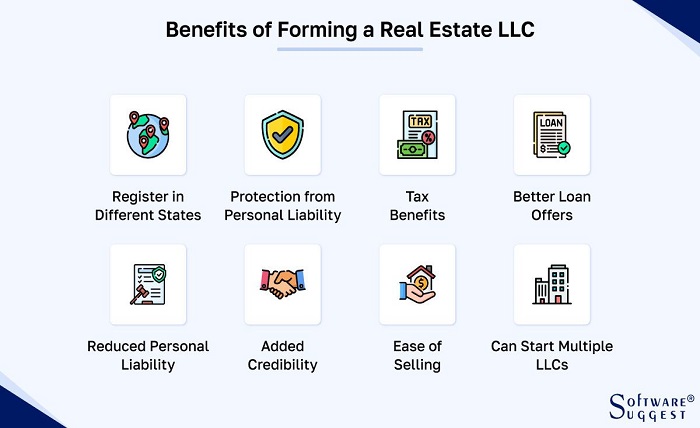LLCs for Real People: What They Are and When They Fit

Picture this: you’ve been perfecting a family brownie recipe for years, and friends keep saying, “you should sell these.” One day you do. Orders roll in, then a delivery mishap pops up, and suddenly you’re wondering if your personal savings could be pulled into the mess. That’s the moment many folks say, “okay, I need to figure out this LLC thing.” Nakase Law Firm Inc. often hears questions like “what is an LLC?” from everyday entrepreneurs who want to protect themselves as they chase business goals.
An LLC—short for limited liability company—sits between a casual one-person setup and a full corporation. It’s flexible, it looks professional, and it helps keep your personal assets separate from the business. California Business Lawyer & Corporate Lawyer Inc. often works with people asking, “how do you start your own business, and what challenges might you face?” That question shows up early, since picking a structure sets the tone for how you run, fund, and grow your idea.
The short version
Think of an LLC as a protective wrapper. The company owns the obligations; you don’t personally carry them in most cases. If a client sues or a supplier dispute erupts, the claim targets the business first. On top of that, the default tax setup is straightforward: profits and losses flow to the owners’ personal returns. And if you prefer a different tax route later, you can elect one. Handy, right?
Here’s a quick story. A photographer I know started as a sole proprietor. He did great, then had a near-miss when a client blamed him for a last-minute venue mix-up. No lawsuit followed, but the scare was enough. He formed an LLC the next week and slept better from that night on.
Why people pick an LLC
First, peace of mind. You can take smart risks without feeling like everything at home is at stake. That alone helps owners make clearer decisions. Next, it sends a signal. Partners, landlords, and vendors tend to take you more seriously when they see “LLC” on your paperwork and invoices. Also, the day-to-day is manageable. You don’t need layers of formal meetings or heavy record-keeping to stay in good standing in many states.
Here’s a quick connector to real life: say you run a small landscaping outfit. A mower spits a rock into a client’s window. Annoying? Yes. The end of your personal savings? With an LLC in place, that worst-case scenario is far less likely.
Moments when an LLC can disappoint
There are trade-offs. Many owners pay self-employment taxes on their share of profits, which can sting during a strong year. Raising outside money can also be tougher, since some investors prefer the stock-based model of a corporation. And state rules vary—fees in one place might be modest, but in another they can feel heavy. So it pays to check your state’s playbook before filing.
By the way, timing matters too. If you expect venture funding soon, a corporation might fit better from day one. If you want a clean, flexible setup for a service business or a shop on Main Street, the LLC path often clicks.
How to set one up
Here’s the practical checklist, minus the fluff:
- Pick a name that’s unique in your state and includes “LLC” or the full phrase.
- File formation paperwork with your state (names differ, but you’ll usually see “Articles of Organization” or “Certificate of Formation”). It’s basically your “we exist” document.
- Draft an operating agreement. This is the playbook: who owns what, who decides what, how profits are split, and what happens if someone exits. Think of it as a business prenup that keeps friendships intact.
- Get licenses and permits that fit your field—food permits, local registrations, professional credentials.
- Apply for an EIN with the IRS. It’s like a Social Security number for the business and helps with taxes and bank accounts.
Small touch from the field: I’ve seen co-owners avoid months of arguments just because their operating agreement spelled out “if Alex wants out, here’s the buyout formula.” No drama, just a process.
How it stacks up against other setups
Sole proprietorship: it’s cheap and fast to start, yet your personal assets sit in the splash zone if things go wrong.
Partnership: good for teaming up, but both partners can be personally exposed if you don’t build in protections.
Corporation: strong shield and investor-friendly, though you’ll juggle more rules and might face two layers of tax unless you pick a different election.
So, the LLC sits in a nice middle lane: protection with a lighter touch on formalities. For a boutique gym, a design studio, a mobile coffee cart—this balance often lands just right.
Taxes, without the maze
Default rules are simple. A one-owner LLC is taxed like a sole proprietorship; a multi-owner LLC is taxed like a partnership. Income flows to owners, who report it on personal returns. Want a different approach? You can elect S-corp or even C-corp taxation if that serves your goals. That choice can affect payroll, owner compensation, and how much you keep after tax.
Quick example to connect the dots: Mia runs a marketing shop that’s growing fast. Early on, the default pass-through treatment made sense. Later, after talking with a pro, she elected S-corp taxation to fine-tune how she paid herself. Same LLC, different tax lane.
Put your rules in writing: the operating agreement
Even in states that don’t force you to have one, write it. A two-founder coffee bar feels easy on day one—50/50 split, high fives, all good. Then someone wants weekends off, or a new partner joins, or profits surge and opinions differ. With a clear agreement, you follow the script. Without one, you guess, and guessing gets messy.
Here are a few items owners are glad they wrote down: who can sign contracts, how new members come in, how money gets distributed, and how to close things out if you ever wrap up.
Everyday examples that make it real
A freelance web developer uses an LLC to keep client disputes from tapping her personal account.
A family that buys rental houses uses a separate LLC for each property to keep problems siloed.
A home baker adds “LLC” to her business name before selling to local cafés, and suppliers treat her like a steady operation from day one.
Notice the pattern? The owners get protection, a clearer identity, and fewer worries when they take on bigger gigs.
Is an LLC the right fit?
Good question. Not for every vision. If you want to go public, a corporation is the common path. If you’re running a tiny side hustle with almost no risk, you might stick with the simplest setup and revisit later. That said, for many service firms, online shops, small manufacturers, rental owners, and local retailers, the LLC blend of protection and ease lands in the sweet spot.
Another quick story: a handyman with steady referrals debated for months. He finally formed an LLC after a client’s dog tripped over his ladder and the client hinted at a claim. Nothing came of it, yet he said the LLC felt like buckling a seat belt—once it’s on, you stop worrying about it.
Bottom line
An LLC gives everyday owners a workable mix: a legal shield for personal assets, a professional face for the outside world, and flexible choices for taxes and management. It helps you focus on customers, staff, and product quality instead of losing sleep about personal exposure. Advice tailored to your state and your goals is worth seeking, because the best choice depends on your plans, your risk level, and how you expect the money to flow.
And since we started with brownies, here’s one last nudge: put your recipe to the test, keep your paperwork tidy, and build from there. The right structure won’t bake the brownies for you, yet it can make the business side feel steady enough to keep you in the kitchen where the magic happens.




